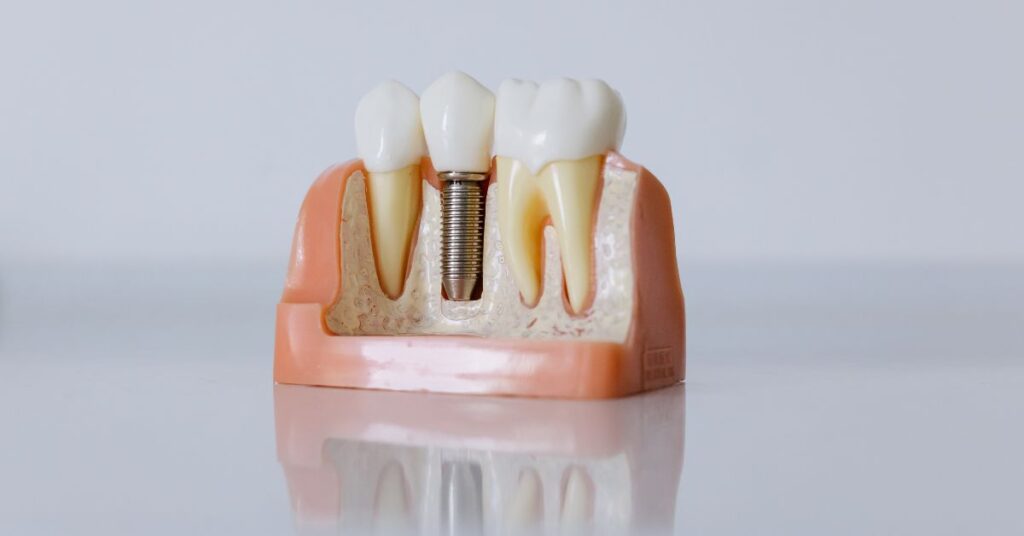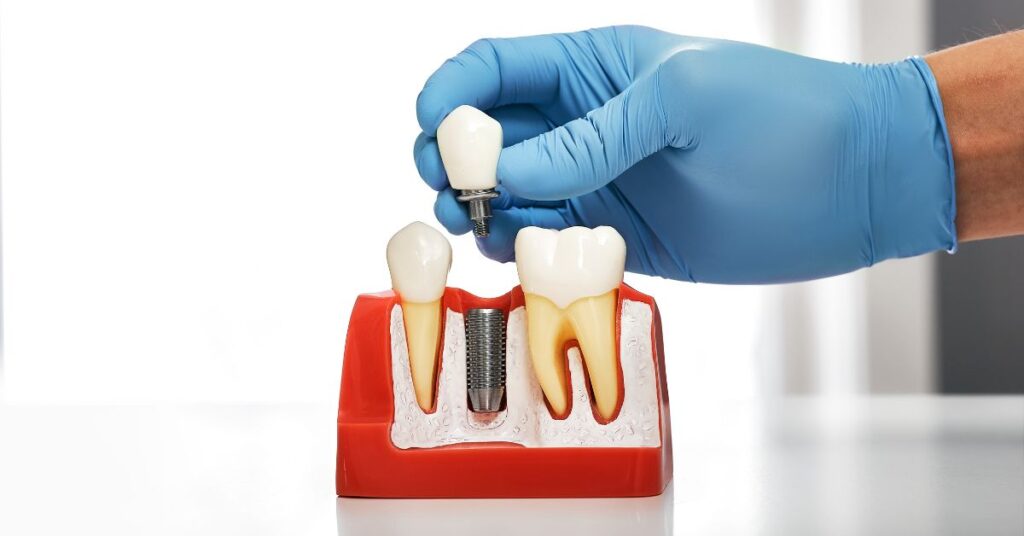
Introduction:
In recent years, dental implants have surged in popularity as a long-term solution for missing teeth. It’s no wonder why – these tiny titanium marvels offer a permanent, natural-looking replacement that can restore both function and confidence. But for many patients considering this investment, one question looms large: just how long do dental implants last?
The good news is that with proper care, dental implants can serve you for decades. In fact, many implants have been known to last 30 years or more. This impressive longevity is a key factor driving their increasing adoption in modern dentistry.
Let’s dive deep into the world of dental implants and uncover the secrets to their remarkable durability.
Understanding Dental Implant Components
To truly grasp the lifespan of dental implants, we need to break down their structure. A typical dental implant consists of three main parts:
The implant screw: The foundation
This is the star of the show – a small titanium screw that’s surgically placed into your jawbone. It acts as an artificial tooth root, providing a sturdy base for the rest of the implant.
The abutment: The connecting piece
Think of the abutment as the middle-man. It’s a small connector that attaches to the implant screw and protrudes above the gum line. Its job is to hold the crown securely in place.
The crown: The visible tooth replacement
This is the part that looks like a real tooth. Crowns are custom-made to match your natural teeth in color, shape, and size, ensuring a seamless smile.
Factors Affecting Dental Implant Longevity

Several key factors influence how long your dental implants will last:
Quality of materials used
High-grade titanium and top-notch crown materials significantly impact durability. Reputable dental practices invest in quality components to ensure long-lasting results.
Skill of the implant dentist
Experience matters. A skilled implant specialist can properly place the implant, reducing the risk of complications and ensuring optimal integration with your jawbone.
Patient’s oral hygiene habits
Your daily dental care routine plays a crucial role in implant longevity. Regular brushing, flossing, and proper cleaning around the implant site help prevent infections and complications.
Lifestyle factors (smoking, diet, etc.)
Smoking can significantly reduce implant success rates. A balanced diet rich in calcium and vitamin D supports bone health, which is essential for implant stability.
Lifespan of Different Implant Components

Let’s break down the expected lifespan of each implant component:
Implant screw: 20-30 years or more
The titanium screw is built to last. With proper care and barring any complications, it can remain firmly integrated with your jawbone for decades.
Abutment: Typically lasts as long as the implant
Made from durable materials like titanium or zirconia, the abutment generally matches the lifespan of the implant screw.
Crown: 10-15 years on average
The crown bears the brunt of daily wear and tear from chewing and biting. While high-quality crowns can last 15 years or more, they may need replacement sooner depending on care and material choice.
Crown Material Options and Their Durability
Your choice of crown material can significantly impact its lifespan:
Zirconia crowns: 15-20+ years
Known for their strength and natural appearance, zirconia crowns offer impressive longevity and resistance to chips and cracks.
Porcelain-fused-to-metal (PFM) crowns: 5-15 years
These crowns combine the strength of metal with the aesthetics of porcelain. While durable, the porcelain layer may wear down over time.
All-ceramic crowns: 10-15 years
Offering excellent aesthetics, all ceramic crowns are a popular choice. Their lifespan can vary based on the specific type of ceramic used.
Gold alloy crowns: 20+ years
While less common for visible teeth due to their appearance, gold alloy crowns boast exceptional durability and can last decades with proper care.
Signs Your Dental Implant Needs Attention

Stay vigilant for these warning signs that your implant may need professional evaluation:
Pain or discomfort around the implant site
Persistent pain or sensitivity could indicate infection or implant loosening.
Visible damage to the crown
Chips, cracks, or excessive wear on the crown may necessitate replacement.
Gum recession or inflammation
Receding or inflamed gums around the implant can compromise its stability and health.
Difficulty chewing or biting
Changes in your bite or discomfort when chewing may signal implant issues.
Conclusion: Dental Implants as a Lifetime Investment
Dental implants offer a remarkable solution for missing teeth, with the potential to last decades or even a lifetime. By understanding the factors that influence implant longevity and following proper care guidelines, you can maximize the lifespan of your investment.
Remember, the key to long-lasting implants lies in choosing an experienced implant dentist, maintaining excellent oral hygiene, and addressing any issues promptly. With the right approach, your dental implants can provide you with a confident, functional smile for years.
Always consult with a qualified dental professional to determine if dental implants are the right choice for your individual needs and to develop a personalized care plan for optimal longevity.
